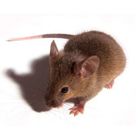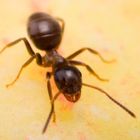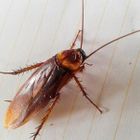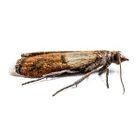The first step in protecting a building is to prevent termites from gaining access. This is achieved by placing a termite management system under or around the building. Termite management systems are designed to deter termites or bring their presence out into the open. A termite management system can be physical or chemical in nature and includes:

Finding rats or mice in your home can be distressing. They transmit disease and pose health risks in kitchens or where children play due to the urine and droppings that they leave behind. Their natural gnawing habit can also cause great damage to your furniture, furnishings and equipment. Rodents multiply rapidly and if undetected or not treated promptly, the infestation can quickly occur.
Treatment of Rodents
Having rodents in your property is a sign they are attracted to something. Look out for signs such as droppings, damage to fabrics, furniture and food storage, shredded paper or cardboard and a strong ammonia-like smell. If you suspect you have a rodent problem, not only will we safely and humanely eliminate them, but we also offer advice for future prevention. At Aardvark Pest Control, we can:

Ants are mainly a nuisance pest rather than a health problem. Ants cause problems primarily when they forage in buildings for food or water and when they construct nests in buildings and gardens. When searching for food, they are attracted to a wide range of foodstuffs. They will also search indoors for water during dry periods. When desirable items are found, many species will recruit fellow nest mates to help gather the food and return it to the nest. This can result in large numbers of ants appearing over a short period.
Treatment of Ants
An ant infestation requires professional treatment to completely control the problem and can take the form of:

Cockroaches are known carriers of diseases such as salmonella, dysentery and gastroenteritis and exposure to this type of pest can cause significant health risks. They are hardy insects and their ability to rapidly breed makes professional treatment a necessity to effectively control and eradicate any infestation. Cockroaches are mostly active at night, so it is sometimes easier to spot the signs rather than sighting the insect itself. Signs may include:
Cockroach Treatment
Our professional pest controllers can quickly and safely eliminate cockroaches from your home without causing a risk to you, your family or your pets. We use specialist traps and non-toxic sprays and dust to target areas where cockroaches hide. Once the infestation has been cleared, our knowledgeable team can offer advice on proofing your home to prevent re-occurring infestations.

There is a range of moths that can be found inside or outside the home. The good news is that they don't pose a health risk, but they can cause significant damage to clothing, leather, fur carpets and other soft furnishings. If you notice holes in your clothes or household fabrics, or spot larvae or cocoons, chances are you have a moth problem.
Moth Treatment
Moths can be effectively treated using a specialist spray and fumigation methods. Regular vacuuming, cleaning of wardrobes, drawers, suitcases, and frequent washing of soft furnishing can also deter and break the life cycle of moths.

About the size of a cat, the common ringtail possum is grey with white patches behind the eyes and on the belly and orange‐brown tinges on the tail and limbs. Almost exclusively tree‐dwelling, possums live in forests, woodlands, rainforests, dense scrub and suburban gardens.
Urban expansion is putting pressure on native habitats, reducing the amount of natural environment for possums (and other animals) to live in. Many species of possums have proven capable of living in urban environments. Houses and other buildings make ideal habitats offering a warm, dry environment close to an almost limitless food source thanks to our gardens and compost bins.
Possum Treatment
When possums are living in the roof of your home, the most humane and practical way of removing these highly territorial animals is to provide alternate housing. This can take the form of nest boxes placed in trees near the building. Shining a bright light in the ceiling for several days will help deter them from coming back. After the possum is no longer on the roof, have the roof repaired to prevent re‐entry.

Pigeons are a common carrier of diseases and pose a real health risk to the community. Pigeons are known to carry salmonella and other fungal infections that can lead to diseases such as meningitis. Their nests also play host to small bird mites that can bite humans and cause skin irritations such as dermatitis. As well as spreading disease, their droppings and feathers look unsightly on your property and their noise and flapping can be a disturbance.
Pigeon Treatment
To avoid a pigeon infestation, we recommend refraining from feeding birds to keeping rubbish bins covered. By not feeding the birds, you will discourage them from nesting, as they will stay as long as food is available. Our pest control experts can also employ the use of netting to safely remove birds without harm.